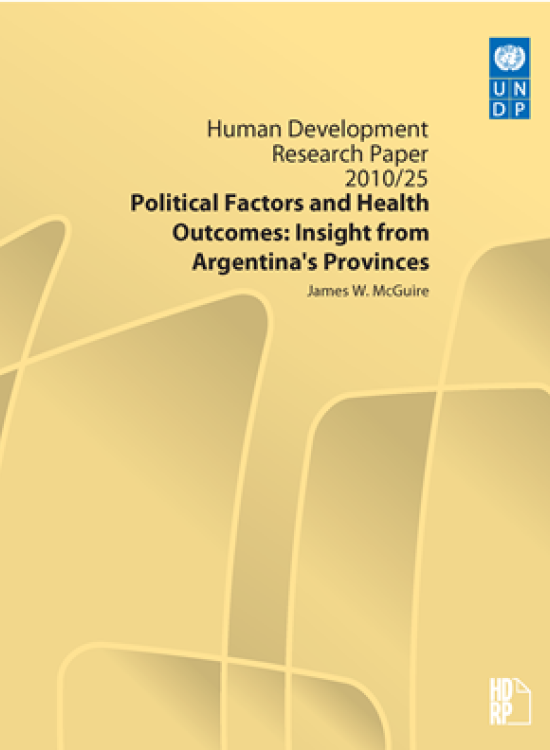Political Factors and Health Outcomes
Insight from Argentina's Provinces

Download Report by Language
Document
hdrp201025.pdf
(453.87 KB)
Citation
McGuire, James W.. 2010. Political Factors and Health Outcomes: Insight from Argentina's Provinces. New York.
Political Factors and Health Outcomes
Insight from Argentina's Provinces
Posted on: January 01, 2010
This paper explores whether political factors were associated with health outcomes across Argentina's 23 provinces and Federal Capital from 1983 to 2005, controlling for national trends, per capita economic output, and other provincial specificities. The introduction of a gender quota for the lower house of the provincial legislature is found to have a statistically significant and substantively strong association with lower infant mortality. Most other political factors are found to be unassociated with the health share of provincial spending, attendance at birth by trained personnel, or infant survival. This lack of association stands in contrast to the findings of the cross-national literature, in which political factors are often found to be associated with health care spending, health service utilization, and health status. Differences in level of analysis (national vs. subnational) and in statistical technique help to explain these contrasting findings. Still, the analysis suggests that relations between political factors and health outcomes may be weaker than is sometimes suggested. As Amartya Sen has noted, democratic freedoms (and other political factors) create opportunities to improve other dimensions of human development. Whether these opportunities are seized depends on the actions of citizens and governments.

